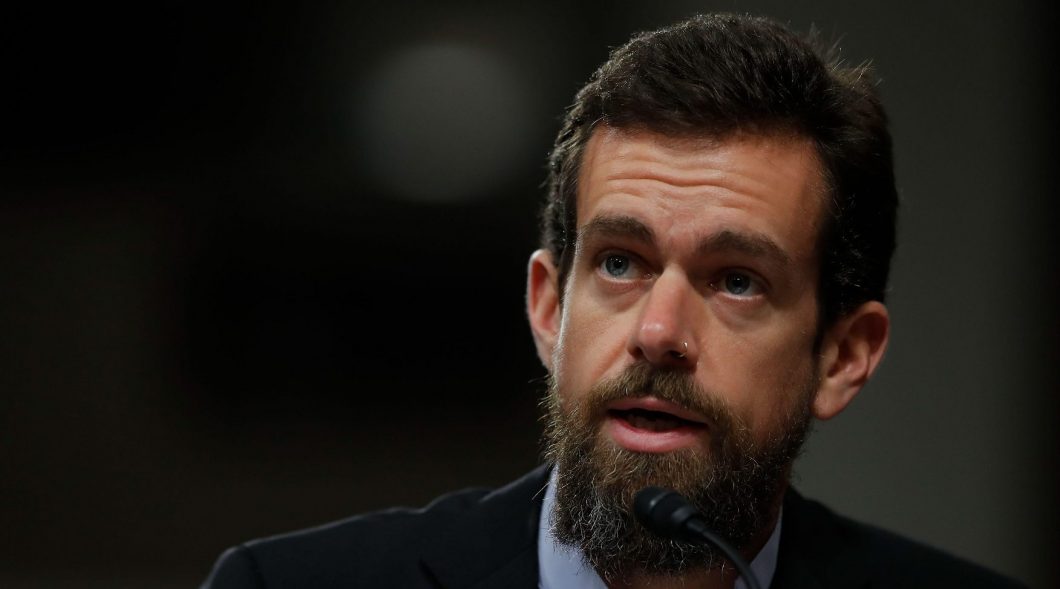Conservatives should take a deep breath and allow market forces to tame the tech companies.
Can a Classical Liberal Support Big Tech Regulation?
Recently, big tech—Facebook, Twitter, Google, Apple, and Amazon—have become even more aggressive at eliminating conservatives from their platforms and services. While some people have criticized these actions as a violation of freedom of speech, the common defense is that these are private companies and freedom of speech only restricts the government. To a classical liberal like me, this is a strong argument. But I now believe that classical liberalism allows the legislature to prohibit many of the actions of big tech not as violations of freedom of speech but as impermissible discrimination exercised by those with quasi-monopoly power.
It is important to stress that my argument relates only to whether such a prohibition on discrimination is consistent with classical liberal principles, not whether it would be desirable policy. The latter question depends on whether the results of such a prohibition would turn out to be better than those of a market without the prohibition. But the more fundamental question is whether restricting a private entity is even consistent with classical liberal principles. Following one’s principles is essential. Otherwise, as Hayek stressed, the exigencies of the particular crises or issues that arise will dominate our minds and lead us to ignore the long-run considerations that underlie our principles.
Classical liberalism generally favors limits on government and the encouragement of competitive markets as a means of protecting freedom and promoting prosperity. Concerning government, classical liberalism supports restricting the government’s power to coerce by general and prospective rules. It also advocates limiting government’s control of resources by prohibiting it from discriminating against individuals. These limitations protect the freedom of individuals from the government’s power to coerce them and control their lives.
In contrast to government, private entities are generally allowed to act as they desire so long as they respect the property and other rights that individuals possess. This freedom of private entities does not generally coerce individuals because these entities do not possess the necessary monopoly power to do so. It is true that the monopoly seller of important goods or services could infringe on people’s freedom by discriminating against certain individuals. The monopolist could do this by refusing to sell his product to a consumer unless the individual refrains from taking certain actions, such as practicing a religion or expressing a political viewpoint. Alternatively, the monopolist might refuse to allow the individual to use his product to take certain actions, such as not allowing people to travel on a railroad to attend certain activities. But so long as there are a reasonable number of competing sellers, it is unlikely that an individual needs to worry about such pressure, since he can usually secure the services from at least one of the sellers.
But the situation is different if a seller enjoys monopoly power over some important good or service. For that reason, classical liberal writers and institutions have often placed limits on monopoly sellers of goods and services. For example, the Anglo-American legal system long subjected common carriers to a nondiscrimination rule requiring them to provide services on the same terms to all persons. Under such a nondiscrimination requirement, a common carrier would be prevented from using its monopoly power to coerce an individual, but otherwise allowed to choose the price and terms of service of its product. Although big tech companies may or may not satisfy the historical standards for common carriers, the key point is that those regulations would be legitimate to the extent they were addressing monopoly power.
While this restriction on monopoly power is important, in the big tech world most of the companies probably do not enjoy monopoly power. For example, the app stores on Apple and Android recently refused to carry the Parler app. But neither of these providers enjoys a full monopoly. Instead, the situation in the tech world often involves a small number of sellers—what has usually been called an oligopoly.
Do classical liberal principles allow a nondiscrimination principle to be applied to oligopolistic markets? If the different sellers are acting in concert, then they are acting like a monopolist and so can be prohibited from discriminating. But suppose three different sellers are acting independently. Can they each be prohibited from discriminating?
The situation faced by people who use big tech is similar to one faced by consumers of a monopolist.
If all three sellers are discriminating in the same way, that creates a problem. From the perspective of the purchaser, it does not matter whether the sellers are acting in concert or not. If they will not provide a service to persons of certain religions or political views, the freedom of these people is being restricted. Of course, that there are three sellers makes it less likely that they will agree on such a matter, but if they do, then the buyer’s freedom will be infringed.
How likely it is that three sellers will behave in this way—all discriminating against the same behavior, where the discrimination is largely unrelated to profits—turns on the circumstances. The sellers are more likely to discriminate in this way if (1) people in the industry feel strongly about an issue, (2) this view is held widely throughout the industry, (3) people are willing to act on these beliefs (they are moral busybodies), and (4) it is easy to determine which buyers are engaged in the relevant behavior.
These circumstances will vary in different oligopolistic markets. While the oligopolistic 1960s American automobile industry was neither inclined nor easily able to refuse to sell cars to people whose actions they disapproved of, these circumstances hold strongly in the tech industry as to political views. Thus, the situation faced by people who use big tech is similar to one faced by consumers of a monopolist. It would appear, then, that classical liberal principles would allow a prohibition on discrimination to be applied to certain parts of the tech industry.
This prohibition would not prevent the tech industry from taking most of the legitimate actions that it does now. For example, platforms often act against harassment, false statements, or threats of violence. They could continue to do so, adopting whatever policy they desired, so long as they did not administer it in a politically biased way. Twitter, for example, could not allow left-wing voices to threaten violence, while banning right-wing voices who do the same thing. Twitter could, however, ban threats of violence if the ban was applied impartially.
It should be acknowledged that this nondiscrimination requirement might in some cases be difficult to administer. One question involves whether Twitter, in the example above, is actually treating left-wing voices less strictly than right-wing voices. Another question is how one would define discrimination, which can sometimes be difficult.
Such issues could easily involve a large number of disputes that would have high costs to administer. One way to address the issue would be to confer deference on tech companies that adopt transparent and balanced procedures for resolving these issues. To receive the deference, a company would first have to announce nondiscriminatory terms of service, give specific reasons when it bans a user, and allow appeals. In addition, the adjudicators would have to be composed of a politically balanced group of judges. If the procedures were both transparent and balanced, then the company’s decision would stand unless a court determined it was unreasonable.
Even with this system, these costs might still be considerable. But these costs are the price that would be paid for protecting people from the coercion of monopolists and oligopolists under the special circumstances now prevailing in the tech industry.
In sum, the reasons that justify prohibiting discrimination by monopolists under classical liberalism also often justify prohibiting big tech from discriminating based on political ideology. Such a prohibition would prevent big tech from coercing people as to their political views. While some classical liberals might still oppose a nondiscrimination requirement based on policy, one cannot argue that the requirement violates classical liberal principles.


